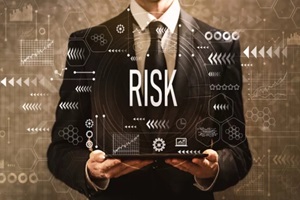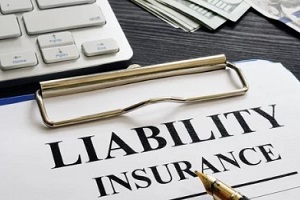 Running a small business exposes business owners to a certain amount of risk. Proper safeguards to handle fallouts are critical to minimize serious reputational and financial repercussions. It is important for Hawaii small businesses to understand what types of insurance risks they face based on location, industry, and technology usage.
Running a small business exposes business owners to a certain amount of risk. Proper safeguards to handle fallouts are critical to minimize serious reputational and financial repercussions. It is important for Hawaii small businesses to understand what types of insurance risks they face based on location, industry, and technology usage.
Using this information, business owners can invest in insurance policies that protect against common risks. No small business is immune to business risks from fire damage and flooding to theft and economic downturn.
Learn more about common small business risks in Hawaii and how to protect against these risks with the right commercial insurance policies.
Common Small Business Insurance Risks
1. Property Risks
Owning commercial property carries significant risks. Whether a property is owned or leased, common perils such as theft and natural disasters could damage business property, resulting in substantial repair or replacement costs. Small business owners face risks when it comes to a wide range of property types, such as:
- Computers
- Fencing and landscaping
- Inventory
- Furniture and equipment
- Exterior signs
- Important documents
- Others’ property
In addition to the significant costs of repairing or replacing damaged property, small business owners must also consider the expense of business interruption resulting from property damage. For example, if a restaurant suffers fire damage, it may be forced to close temporarily, resulting in lost revenue.
Commercial property insurance is essential for any small business owner that owns or leases business property. Property damage coverage is an important component of any small business owner’s policy (BOP). A BOP consists of both general liability and property damage coverage.
2. Liability Risks
Small businesses face liability risks that can cause them to be held responsible for certain types of losses. There are many different types of liability risks that a small business could be exposed to during normal operations, such as general liability risks, professional liability risks, product liability risks, contractual liability risks, and premises and operations risks. Examples of liability risks for small businesses include:
 A client slipped and fell in your store.
A client slipped and fell in your store.- Delivery staff damaged a wall while delivering furniture.
- A customer fell ill from food eaten in your restaurant.
- A delivery person backed into a vehicle while delivering takeout.
Having general liability coverage is essential for a small business owner in Hawaii. General liability insurance helps protect small business owners from a wide range of common business risks, such as claims involving property damage and bodily injuries resulting from the business’s products, operations, or services.
3. Transportation Risks
Any company that uses a vehicle for business purposes faces transportation risks. Whether a company vehicle is used to pick up inventory or deliver goods to customers, there is a risk that the driver could become involved in a collision or other vehicle accident.
Commercial auto insurance is necessary to protecting small businesses from common transportation risks. A typical commercial auto insurance policy can help protect small business owners by delivering the following benefits:
- Liability coverage
- Comprehensive coverage
- Medical payment and lawsuit coverage
- Physical damage and collision protection
- Optional add-ons for added security
Business vehicles may include commercial trucks, or company cars. Food trucks and box trucks are also common examples of covered business vehicles. With commercial auto insurance, small businesses are protected from any property damage or personal injuries sustained to others if an employee causes an accident while driving a covered work vehicle.
A policy may also cover the cost to repair or replace a work vehicle if the policyholder purchases additional coverage, such as collision and comprehensive insurance. Commercial auto insurance can cover both a business owner and all licensed employees who drive company vehicles and are listed on the insurance policy.
4. Cyber Risks
The number of cyber threats impacting businesses has skyrocketed in recent years. Online hackers have developed more sophisticated ways to steal sensitive information and risks businesses’ safety and confidentiality. Today’s small businesses must be prepared to handle a wide range of cybersecurity threats, such as:
 Malware and ransomware
Malware and ransomware- Endpoint attacks
- Phishing scams
- Supply chain and third-party attacks
- Artificial intelligence and machine learning attacks
- IoT attacks
- Form-jacking
- Inadequate patch management
Cyber liability insurance is recommended for small businesses that use any technology in their day-to-day operations. With cyber liability insurance, small businesses can invest in coverage that helps with litigation expenses and protects against business interruption due to a cybersecurity attack.
Protect Against Business Risks with Atlas
Regardless of size or industry, nearly every small business can benefit from having adequate insurance coverage to protect against common risks, such as property damage, bodily injury, lawsuits, and car accidents.
For more information about common small business insurance risks in Hawaii, or to speak with an experienced insurance agent about your policy options, contact Atlas Insurance Agency at (808) 400-6634.
